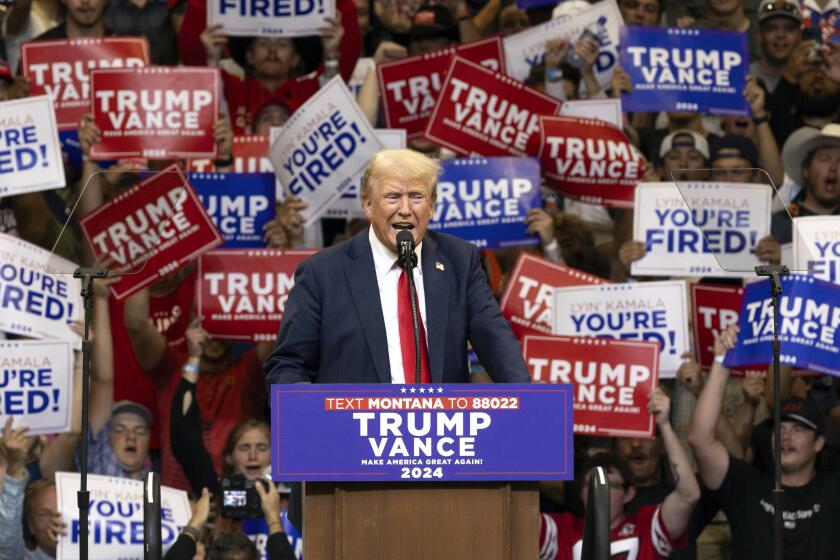Turn Politicians Into Our Representatives
- Share via
Whatever happens in this election, few of us expect much from the next Congress. For good reason. To paraphrase management expert W.E. Deming, if year after year most people in Congress do their job poorly, we need to redesign the job.
Imagine that you are a member of Congress. You represent a district of 600,000 people--young, old, prosperous, struggling, liberal, conservative--who disagree on one issue or another. Anything you say or do will anger some key bloc of voters. The surest way to stay in office is to duck most issues with slogans and blame the nation’s major problems on the other political party.
As citizens, we are trapped, too. All of us in a district have different views, but we have to share the same congressional representative. So, most of us have little hope of being represented for what we believe in. No wonder most of us don’t vote, become informed or participate.
Why do we accept this? The Constitution doesn’t mention district elections, much less require them. We have kept them out of habit and because the voting methods used elsewhere lead to even nastier politics. Nowhere do elected representatives have a sensible job description.
But a model exists. We use representatives in many areas of life besides politics, and the process works. What’s different? A representative usually speaks for a group of people who all agree on their objectives and usually communicates with that group directly, not via the media. That way, he or she can fully explain how the agreements negotiated will meet the group’s needs.
Recently, for example, representatives from environmental, labor and civil rights groups, and the oil, chemical and paper industries met at the White House and crafted a long-range plan for the nation’s environment. These traditional adversaries unanimously agreed on matters Congress isn’t even close to agreeing on. Their plan was also better for the environment and for business than any environmental legislation now on the books.
Their secret? Each representative spoke for a group of people who shared the same concerns, so each one had clear objectives to negotiate for. Each representative also was in direct contact with his own group and could explain how the compromises he made were necessary to reaching an agreement.
Each member of Congress, however, speaks for a diverse audience that isn’t even paying attention. Deal with heated issues honestly, and you put your seat at risk. The other political party also will soon be after your seat. So, why negotiate with the opposition on hard issues?
The country will do much better if we organize the House so that each legislator speaks for a group of people who share the same political outlook, and each legislator reports to his or her group often. In a typical state, one representative might speak for the most conservative citizens, one for traditional liberals, one for libertarians, one for fiscally conservative social moderates and so on. Each of us would be represented for our values and beliefs. We would have powerful reasons to vote, stay informed and pay attention to the actions of the person we elected.
Now try on the job of legislator again. This time, your constituents all share your political outlook. Legislators you disagree with are no longer your competitors. In fact, the only way to fulfill any of your platform is to work out as many differences as you can with other lawmakers. Then you can show your constituents how that was necessary to achieve as much of their agenda as possible.
To show the country how this idea would work, two nonprofit organizations are assembling a “shadow Congress.” They will recruit concerned citizens to run as candidates. A widely varied sample of Americans will serve as voters. Each person elected will be responsible to voters who share the same outlook. Pressures on the representatives will be made true to life. They will tackle the tough issues. Many proceedings will be televised. Citizens and experts will be able to compare bills the “shadow Congress” passes with those of the real Congress.
If we find this new approach is much better, can it become a reality? In time. If enough of us ever make this kind of reform our top issue, Congress will either begin to enact it or we can vote out incumbents who block it. Ultimately, we have the power to turn politicians into our representatives.
More to Read
Get the L.A. Times Politics newsletter
Deeply reported insights into legislation, politics and policy from Sacramento, Washington and beyond. In your inbox twice per week.
You may occasionally receive promotional content from the Los Angeles Times.










